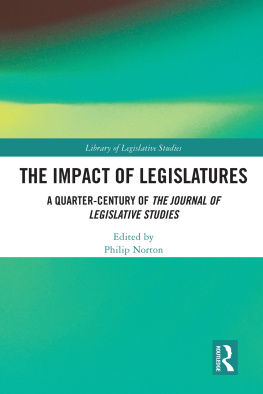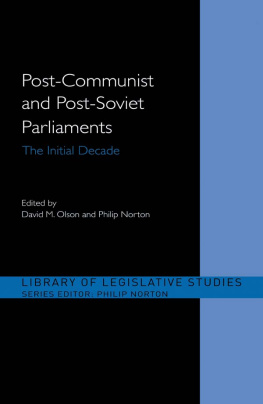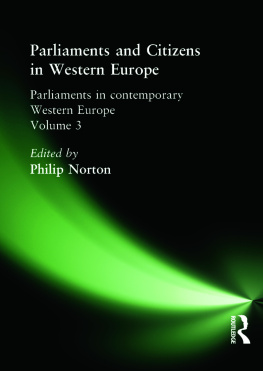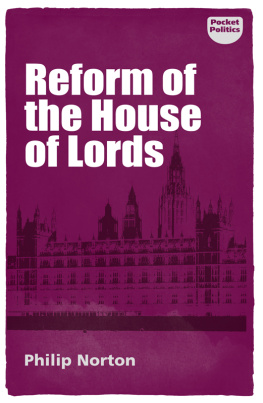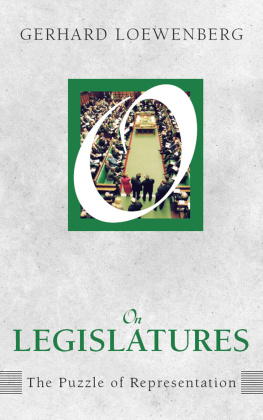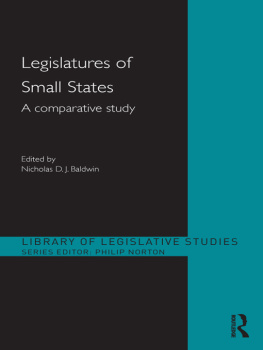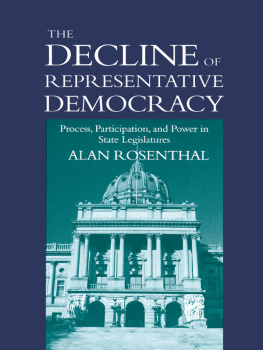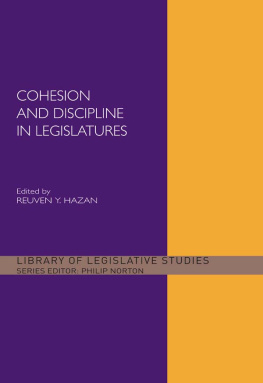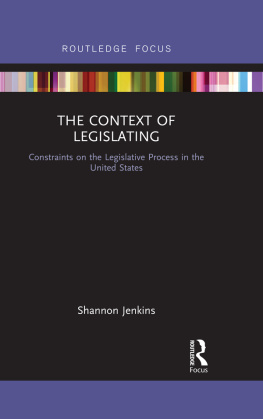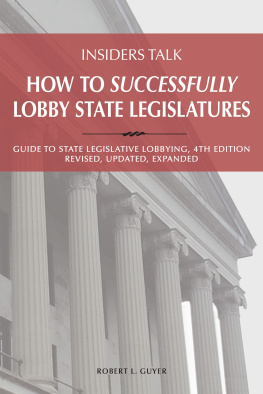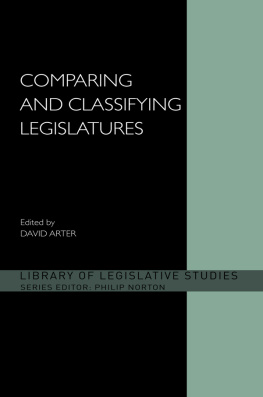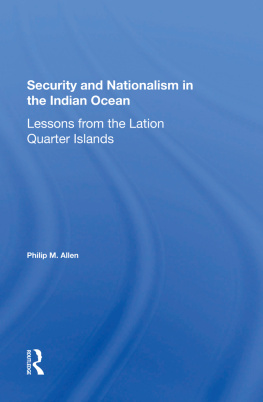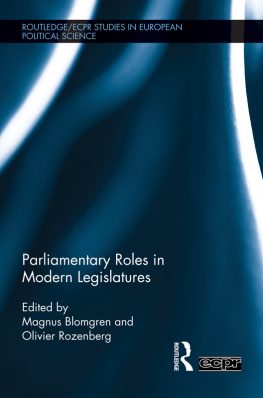The Impact of Legislatures
The Impact of Legislatures brings together key articles and path-breaking scholarship published in The Journal of Legislative Studies during its first 25 years of publication, enabling the reader to make sense of the impact of legislatures in the modern world.
Encompassing theory, comparative analysis, and county-based empirical studies, the volume examines the impact of legislatures as the key representative institutions of nations, addressing their relationships both to government and to the people. Legislatures are ubiquitous. They provide legitimacy to measures of public policy and to government. As such, they are key to how a nation is governed. But they do much more than confer legitimacy. They are generally multi-functional and functionally adaptable bodies, and are an essential link between citizen and government. However, scholarship on them has not been extensive and has often been descriptive and country-specific, limiting the capacity to make sense of them as a particular species of institution. The chapters in this volume reflect scholarship that helps the reader appreciate the significance of the place and consequences of legislatures, examining not only the relationship between the legislature and the executive, but also the oft-neglected relationship between legislatures and the people.
Reflecting the growing body of research in the field of legislative studies, carried by The Journal of Legislative Studies since its inception in 1995, The Impact of Legislatures is essential reading for anyone wishing to understand the impact of legislatures in the world today.
Philip Norton (Lord Norton of Louth) is Professor of Government and Director of the Centre for Legislative Studies at the University of Hull, UK, and is a member of the UK House of Lords. He is the Founding Editor of The Journal of Legislative Studies.
Library of Legislative Studies
Series Editor: Lord Philip Norton of Louth
University of Hull, UK
Parliaments and Citizens
Edited by Cristina Leston-Bandeira
Legislatures of Small States
A Comparative Study
Edited by Nicholas D. J. Baldwin
Parliamentary Communication in EU Affairs
Connecting with the Electorate?
Edited by Katrin Auel and Tapio Raunio
Government-Opposition in Southern European Countries during the Economic Crisis
Great Recession, Great Cooperation?
Edited by Elisabetta De Giorgi and Catherine Moury
The Legislature of Brazil
An Analysis of Its Policy-Making and Public Engagement Roles
Edited by Cristiane Brum Bernardes, Cristina Leston-Bandeira and Ricardo de Joo Braga
Regional Parliaments
Effective Actors in EU Policy-Making?
Edited by Gabriele Abels and Anna-Lena Hogenauer
The Iberian Legislatures in Comparative Perspective
Edited by Jorge M. Fernandes and Cristina Leston-Bandeira
The Impact of Legislatures
A Quarter-Century of The Journal of Legislative Studies
Edited by Philip Norton
For more information about this series, please visit: https://www.routledge.com/Libraryof-Legislative-Studies/book-series/LLS
The Impact of Legislatures
A Quarter-Century of The Journal of Legislative Studies
Edited by
Philip Norton
First published 2021
by Routledge
2 Park Square, Milton Park, Abingdon, Oxon, OX14 4RN
and by Routledge
52 Vanderbilt Avenue, New York, NY 10017
Routledge is an imprint of the Taylor & Francis Group, an informa business
Chapters 14 and 625 2021 Taylor & Francis
Chapter 5 2013 Meg Russel. Originally published as Open Access.
With the exception of , please see the chapters Open Access footnote.
Trademark notice: Product or corporate names may be trademarks or registered trademarks, and are used only for identification and explanation without intent to infringe.
British Library Cataloguing in Publication Data
A catalogue record for this book is available from the British Library
ISBN13: 978-0-367-47144-6
Typeset in Times
by Newgen Publishing UK
Publishers Note
The publisher accepts responsibility for any inconsistencies that may have arisen during the conversion of this book from journal articles to book chapters, namely the inclusion of journal terminology.
Disclaimer
Every effort has been made to contact copyright holders for their permission to reprint material in this book. The publishers would be grateful to hear from any copyright holder who is not here acknowledged and will undertake to rectify any errors or omissions in future editions of this book.
Contents
Philip Norton
Developing Theory
Thomas Saalfeld
George Tsebelis
Comparing Legislatures
David Arter
Anthony J. McGann
Meg Russell
David Arter
Party, Division and Consensus
Ulrich Sieberer
Imad Salamey and Rhys Payne
Andr Kaiser
Helene Helboe Pedersen
Representation
Didier Ruedin
Anouk Lloren
Scott Brenton
Hugh Bochel and Andrew Defty
Influence of Members
Andrew Hindmoor, Phil Larkin and Andrew Kennon
Kelly Blidook
Philip Cowley
Parliaments and Citizens
Cristina Leston- Bandeira
Jeffrey Griffith and Cristina Leston-Bandeira
Philip Norton
Nigel Jackson and Darren Lilleker
Parliamentary Questions
Shane Martin
Olivier Rozenberg and Shane Martin
Federico Russo and Matti Wiberg
Thomas Saalfeld
The following chapters were originally published in various issues of The Journal of Legislative Studies. When citing this material, please use the original page numbering for each article, as follows:
Chapter 1
Rational-Choice Theory in Legislative Studies: Models of Politics without Romanticism
Thomas Saalfeld
The Journal of Legislative Studies, volume 1, issue 1 (Spring 1995), pp. 3264
Chapter 2
Conditional Agenda-Setting and Decision-Making Inside the European Parliament
George Tsebelis
The Journal of Legislative Studies, volume 1, issue 1 (Spring 1995), pp. 6593
Chapter 3
Introduction: Comparing the Legislative Performance of Legislatures
David Arter
The Journal of Legislative Studies, volume 12, issue 34 (September/December 2006), pp. 245257
Chapter 4
Social Choice and Comparing Legislatures: Constitutional versus Institutional Constraints
Anthony J. McGann
The Journal of Legislative Studies, volume 12, issue 34 (September/December 2006), pp. 443461
Chapter 5
Rethinking Bicameral Strength: A Three-Dimensional Approach

